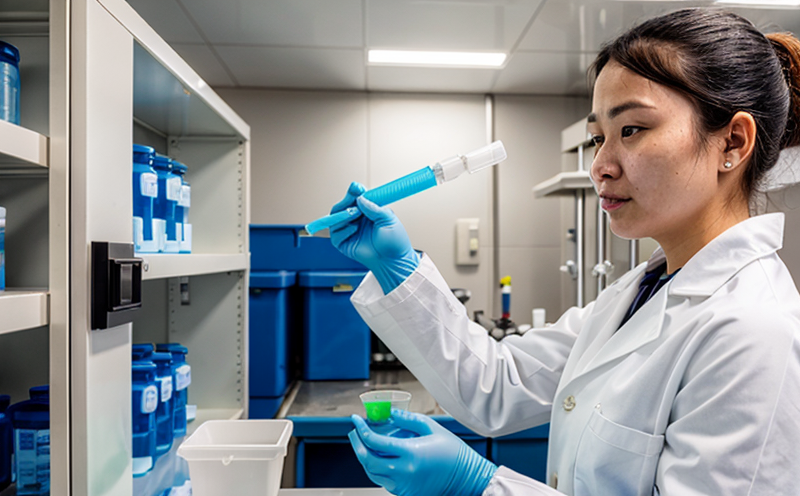USP Microbial Retest Verification Testing
The USP Microbial Retest Verification Testing is a critical service that ensures pharmaceutical products meet stringent quality and safety standards. This testing process is particularly important for manufacturers who produce sterile or non-sterile dosage forms, as well as those involved in the development of biological products.
US Pharmacopeia (USP) guidelines mandate periodic retesting to verify the ongoing reliability and stability of microbial control measures implemented during manufacturing processes. This verification process is essential for ensuring that any deviations from established standards are promptly identified and corrected, thereby minimizing risks associated with microbial contamination.
The service involves a series of tests designed to evaluate the microbiological quality of the product at various stages of production. These include sample collection, preparation, inoculation into appropriate media, incubation, and final identification and quantification of microorganisms. The results obtained from these tests provide valuable insights into the effectiveness of current aseptic techniques used within manufacturing facilities.
Our laboratory adheres strictly to USP guidelines when performing this service. Our team uses advanced microbiological methods and equipment calibrated according to ISO standards to ensure accurate and reproducible results. By leveraging state-of-the-art technology, we can deliver reliable data that supports regulatory compliance efforts.
To better understand how our services align with your needs, let's explore the scope of this testing in more detail:
Scope and Methodology
| Test Type | Description | Relevant Standards |
|---|---|---|
| Microbial Limit Testing (MLT) | Detects the presence of microorganisms in raw materials, intermediates, and final products. | USP Monograph 71 |
| Bacterial Endotoxin Testing (BET) | Identifies the presence of endotoxins in biological products and excipients. | USP Monograph 85 |
| Virus Detection Testing (VDT) | Detects viruses that may be present in biological products. | USP Monograph 86 |
- Sample Collection: Samples are collected from various points along the production line, including raw materials, intermediate products, and final product containers.
- Inoculation: Prepared samples are inoculated into appropriate media to promote microbial growth.
- Incubation: The inoculated cultures undergo incubation periods tailored to specific microorganisms.
- Identification & Quantification: Identified colonies or visible signs of contamination are counted and identified using advanced analytical techniques.
Environmental and Sustainability Contributions
The USP Microbial Retest Verification Testing not only ensures product quality but also plays a crucial role in maintaining environmental sustainability within pharmaceutical manufacturing environments. By adhering to strict protocols, we help reduce the risk of cross-contamination between batches, which can lead to waste reduction.
- Reduced waste generation
- Efficient use of resources
- Minimized energy consumption during testing procedures
- Promotion of sustainable practices throughout the supply chain
Competitive Advantage and Market Impact
The implementation of USP Microbial Retest Verification Testing provides several competitive advantages for pharmaceutical manufacturers. Firstly, it demonstrates a commitment to quality and safety, which is increasingly valued by regulators globally. Secondly, successful completion of these tests can enhance customer confidence in the brand’s reputation, leading to increased market share.
Furthermore, compliance with USP standards positions companies favorably against competitors who may not adhere as closely to industry best practices. This alignment fosters trust among stakeholders and contributes positively towards long-term business success.





